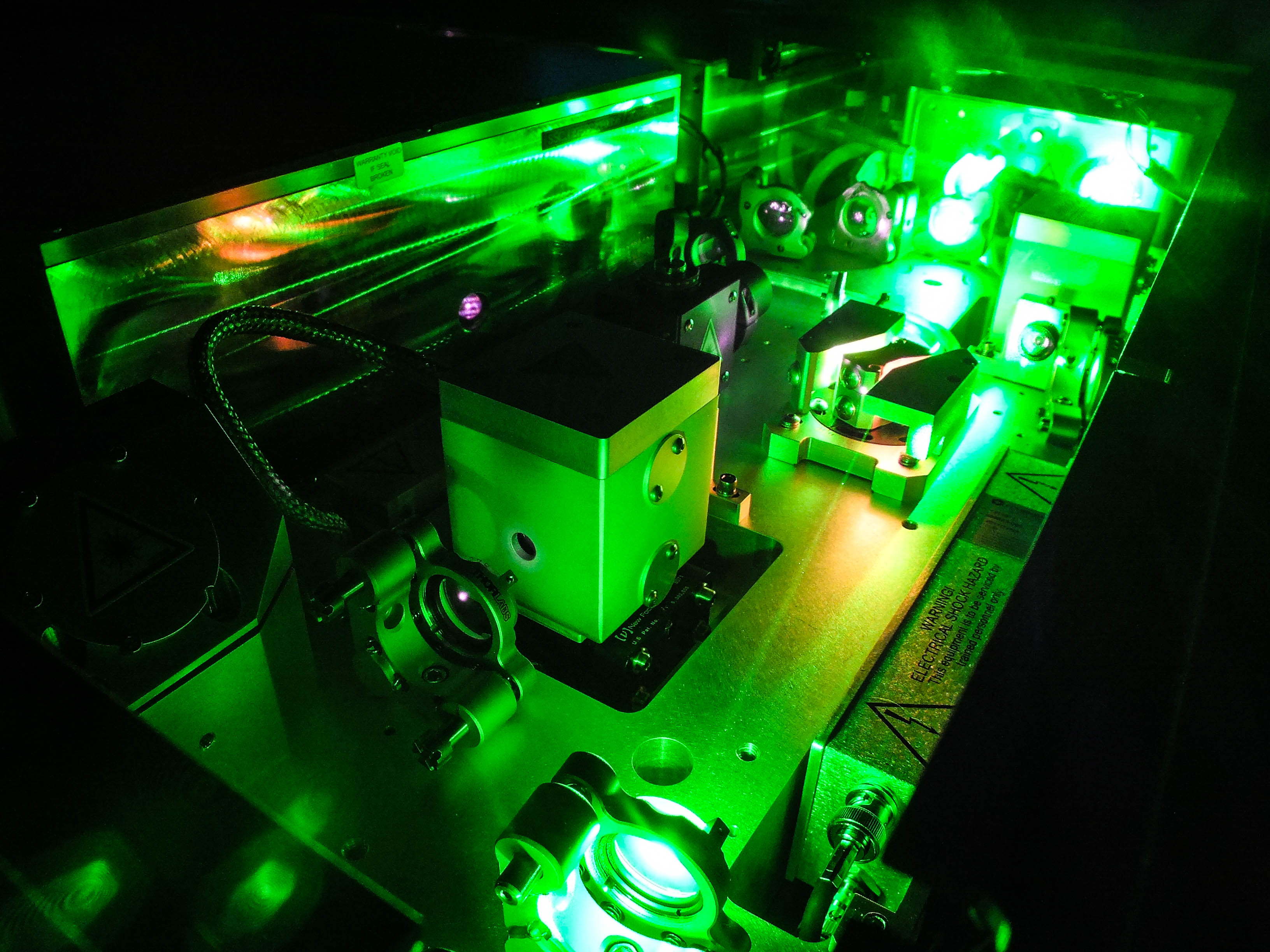Photo by Sarah Vinci | Development of the laser lab has been successful with help from grad students and an amazing team.
In September 2017, the department of chemistry welcomed Dugan Hayes to the team; just a year later, his physical chemistry-based research group, the Hayes Group, is off the ground and running in the Beaupre Center for Chemical and Forensic Sciences.
After earning his Ph.D. in chemistry at the University of Chicago and completing post-doctoral work at Argonne National Laboratory, Hayes found his way to the ocean state to develop his own lab and teach students in the University of Rhode Island chemistry department.
According to the Hayes Group website, a combination of ultrafast spectroscopies spanning from the terahertz to the hard X-ray regimes alongside synthetic chemistry techniques are used to gain mechanistic insight into solar energy conversion processes and thermally driven chemical and biochemical transformations.
A sufficient amount of time has gone into the development of both labs occupied by Hayes. The development of the group’s synthesis lab has been successful, due to the productive work of Missy Smith, one of Hayes’ graduate students. However, their laser lab has proven to be a more complicated development project. Part of that complication is due to the complexity of the instruments they require for experimental work.
“Twenty years ago, in order to do this work, you would have to build your own laser, in addition to experiments,” Hayes said. “Ten years ago when I started graduate school, amplified ultrafast scientific lasers started becoming commercialized, and now the lasers themselves don’t require much maintenance.”
The particular laser needed for their research cost $250,000. They are currently awaiting two instruments for delivery, and once those arrive, Hayes said: “we’ll be good for a long time.”
Part of the development of the laser lab is credited to some of Hayes’ team members.
Cali Antolini, a graduate student under Hayes, and Paul Cesana, a senior in the undergraduate chemistry program, have been major contributors to the start of the Hayes Group laser lab.
“It’s great having them both, they work really well together,” Hayes said.
Due to his seniority, Cesana says that he is able to be more independent in the lab.
“I have a graduate student mentor who I primarily work with, and I am basically allowed to do whatever they do,” Cesana said. Cesana looks forward to going to graduate school for chemistry, maybe even sticking with his roots here at URI.
Cesana is also a research student with the DeBoef Group, a synthetic organic chemistry lab also in Beaupre. The collaboration between the two groups has proved beneficial for the Hayes Group. “It’s like a Venn diagram,” Cesana said.
Not all major research labs welcome younger, less experienced undergraduate students into their labs, but the Hayes Group welcomes all.
“Although their lab skills may be less advanced than juniors and seniors, any actual research lab has fairly specialized techniques for what research you’re doing, so you are always going to have to put in a significant amount of time for training,” Hayes said. “I think it is good to take people younger so you can have them longer,” being able to build on their skill set over a more extended period of time.
Earlier this year, Hayes and his group were awarded an exciting grant from both the National Science Foundation and Department of Energy, partnered with a researcher from Rhode Island College.
“We are going to go to X-ray user facilities, and the grant will fund me and a few students to go to this one storage ring outside of Chicago for the next three summers,” Hayes said.
The particular lab they plan on using, Argonne National Laboratory, is the same lab that Hayes conducted research at after earning his Ph.D. in Chicago.
Hayes has a plan in mind for the progress he wants his group to make in the upcoming months.
“I want to have a fully functional instrument built by the end of the year, and at this point, we can start collecting real data that we can publish,” Hayes said. “We also need to be ready to go to Argonne in the summer. We need to be as productive as we can be while we’re there. Hopefully, if it becomes routine, and the grad students become familiar with the work, we can send them out there during the year as well.”





